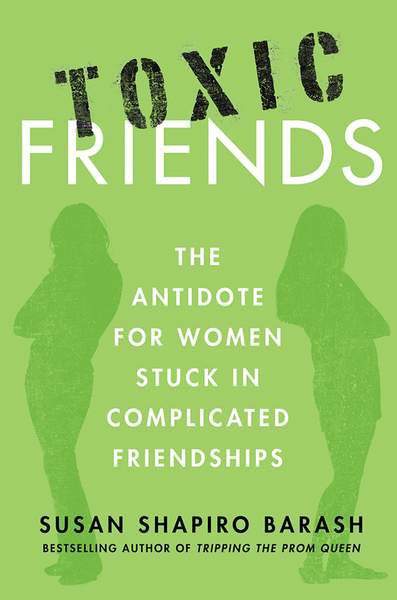From frenemy to BFF, ‘Toxic’ disappoints
Published 5:00 am Sunday, October 18, 2009

- From frenemy to BFF, 'Toxic' disappoints
“Toxic Friends: The Antidote for Women Stuck in Complicated Friendships” by Susan Shapiro Barash (St. Martin’s Press, 274 pgs., $24.99)
A back-stabbing or superficial friend can cause women heartache, turmoil and confusion, and this book attempts to provide answers for women who get into toxic friendships.
Susan Shapiro Barash identifies 10 types of women friends — from the frenemy (both a friend and an enemy) to the true friend — drawing from interviews she conducted with real women. While the concept is promising, “Toxic Friends: The Antidote for Women Stuck in Complicated Friendships” is so clumsily written that it doesn’t deliver.
The friend types include: the leader, who is in charge of a clique of friends and decides what they do together; the doormat, who always plays second fiddle and absorbs her friends’ sorrows; the misery lover, who is only interested in her friends when they are complaining; the trophy friend, who is desirable for her status, money, or beauty; and of course the frenemy.
Barash says women often have traits of several of the 10 types. But the analysis of what makes women like this, or what to do if we are friends with them, is trite. Essentially, Barash says women usually learn how to treat friends from their mothers. And if we aren’t getting enough back on our investment in the friendship, we should let it go.
Each chapter is a mishmash of citations of academic papers and newspaper articles, almost all of which could have been handled more gracefully as footnotes. Awkward references to TV shows and movies are far too numerous, and little insight is drawn from them.
The rest of the book largely consists of excerpts from the interviews Barash conducted (names and identifiable details have been changed, and some of the characters are composites). The excerpts are stilted and don’t sound like real women talking, which makes them unrelatable.
Barash, whose books include “Tripping the Prom Queen: The Truth About Women and Rivalry” and “Little White Lies, Deep Dark Secrets: The Truth About Why Women Lie,” has carved out a niche as an expert on women behaving badly. She frequently (and annoyingly) cites her previous work in this book.






